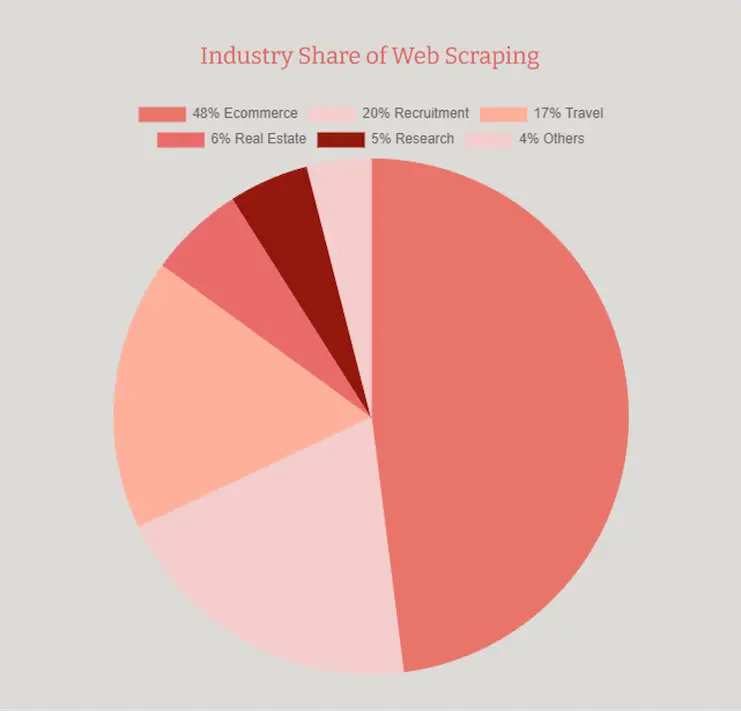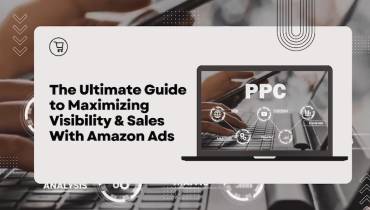What Is Web Scraping? How to Leverage it for Your Business

Think of the internet as a large library and the websites as books. Scouring through all the books page by page manually for specific information would take a lot of time (ignore the fact that it may be humanly impossible).
Instead, there is a way to automatically and quickly scan all the pages, find specific pieces of information, and organize them neatly in a readable form. That is web scraping.
Various third parties provide web scraping services in one form or another that can be gainfully leveraged.
Understand Web Scraping
When you copy a piece of information from a website and paste it into a text document, you are web scraping. To put it in a less crude way, web scraping—also known by more elegant terms like web harvesting and web data extraction—is a process of collecting specific information from across the web that can be used for analysis and other applications.
That is typically done using a tool (web scraper) that scavenges the web, fetches the data, and extracts them. It can be done in-house but most businesses outsource it to a web scraping company with the requisite tools and expertise for efficiency and cost-effectiveness.
Thanks to web scraping, the collection of data such as official statistics, customer sentiments, fares and product prices, and financial and stock market data to name a few is highly efficient.
With scraped data, research and analysis are better and more efficient, and the insights thus derived are more robust.
Types of Data That Can Be Scraped
Web scraping tools enable you to extract all types of data—structured or unstructured. They include text content, images, videos, tables and lists, links and URLs, social media data such as likes and comments, product prices, details and reviews, company information, email addresses and contact information, you name it.
In short, if data exist on the web, then they can be scraped—in theory. In practice, however, the story is different. There are technical hurdles and legal and ethical standards one has to adhere to.
Although there is no explicit legal injunction against web scraping per se and publicly available data may be scraped so long it is done in accordance with the website’s terms of use and policies, harvesting of personal information and copyrighted content is ethically and legally suspect.
The bottom line is web scraping is not illegal but it can be illegally and unethically used.
Applications of Web Scraping for Businesses

Source: Marketsplash
Web scraping has numerous applications both for consumers and businesses. Content scraping is the principal use. Its use encompasses eCommerce, market research, and consulting, with nearly half of web scraping confined to the eCommerce industry.
Properly leveraged, web data scraping can give businesses several advantages. It empowers businesses with copious and relevant data enabling them to derive actionable insights, make informed and strategic decisions, and introduce new products and services. This enables a business to stay competitive and adapt to the vagaries of the market and its specific industry.
Focusing on some key applications will help us understand how you can advantageously use web scraping to gain a competitive edge.
Best Ways to Use Web Scraping in Your Business
Some of the ways you can use web scraping in your business to gain a competitive edge include:
1. Market research and trend analysis
The backbone of market research is high-quality data collection with rigorous sampling. Web scraping constitutes the bedrock of this. It gathers data from diverse platforms and sources—eCommerce platforms, social media, forums, and news agencies. This aggregated data forms the basis for robust market research and analysis.
And because web scraping tools can automatically fetch data in real time, businesses can track evolving trends and stay ahead of the curve. Businesses can quickly adapt to the changes in the market and consumer preferences, ensuring that they stay in tune with the demands of the market.
2. Competitor analysis
Besides providing insights into the market, you can leverage web scraping to understand your competitors and the competitive landscape. With it, you can minutely monitor competitors’ websites, their product offerings and pricing strategies, and their customers’ responses. This can help you uncover gaps in the market and adjust your strategies accordingly.
The competitive intelligence thus acquired helps in the identification of threats and opportunities. It is advantageous for planning and positioning within the market, benchmarking and improving product offerings, and introduction of new products.
By building on competitors’ strengths, learning from their shortcomings, and filling their gaps, you can get a stronger footing.
3. Price monitoring
Extracting pricing information is one of the widely used applications of web scraping—for obvious reasons. It is also the most contentious. Both of these have to do with the importance of price details.
Web scraping tools are used to monitor and collect data on product prices across multiple platforms. They automatically crawl through product pages, retrieve the necessary information in real time, and organize them for analysis. This gives useful insights into competitors’ pricing strategies, promotions, and discounts.
The insights from price monitoring can help you avoid getting into price wars. Understanding competitors’ pricing strategies is also crucial for optimal pricing—setting competitive prices while maintaining profitability.
4. Lead generation
The task of generating leads is drudgery no matter what means are employed, but web scraping tools can make it less so. Indeed, web scraping is one of the most effective ways to collect leads.
A web scraper can scour various domains of the internet and retrieve publicly available contact information. Prospective leads data may be extracted from disparate sources such as business directories, platforms and forums where potential leads frequent, social media platforms, and event and conference sites.
The scraping can be refined by defining your target audience and filtering sites for precision.
5. Social media and content marketing
Web scraping can serve as a tactical component of marketing whatever be the form—email, social media, or content. Scraping competitors’ social media profiles, for example, can help you understand their strategies and improvise them.
And you can easily collect and curate trending news, topics, and trends from across various social media platforms. You can identify potential partners and collaborators for specific industries or niches to enhance and expand your brand presence.
Web scraping is also useful in search engine optimization. It can help you extract data from search engine results pages, analyze how competitors are positioned, identify the strategies and structure they employ, and scrutinize their backlink profiles. This information can be harnessed to create optimized content.
6. Sentiment analysis
To effectively and accurately gauge consumer sentiment, you need lots of data from various sources. Web scraping enables you to collect data at scale and mine people’s opinions, their attitudes, and emotions toward issues, entities, or products. The data may be collected from social media platforms, online marketplaces, product and service review sites, and forums.
Analyzing sentiments about specific trends or products can help you discover how customers perceive certain products and how the market reacts to specific issues. This insight can be invaluable in aligning products and services with consumers’ preferences. It also allows you to proactively maintain a positive brand image, and not reactively repair damages.
Conclusion
In an age inundated with data, those who can effectively gather them and utilize them stand to gain. Access to data is one of the key differentiators between a flourishing and a fledgling business. And among the latter, the missing component is often web scraping, failing to leverage data for strategic insights.
The most cost-effective way to acquire accurately scraped data is by partnering with reliable web scraping service providers who can support any business to effectively utilize web data for research and analysis.
By thus harnessing data, actionable insights can be uncovered facilitating strategic decision-making. This data-driven decision-making is crucial in making a business not just survive in a competitive environment but thrive.





















